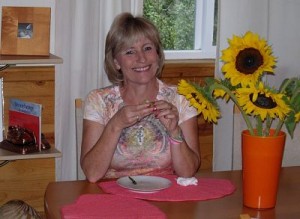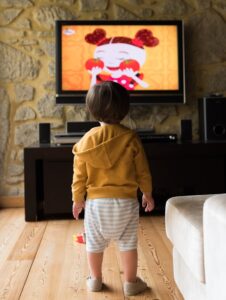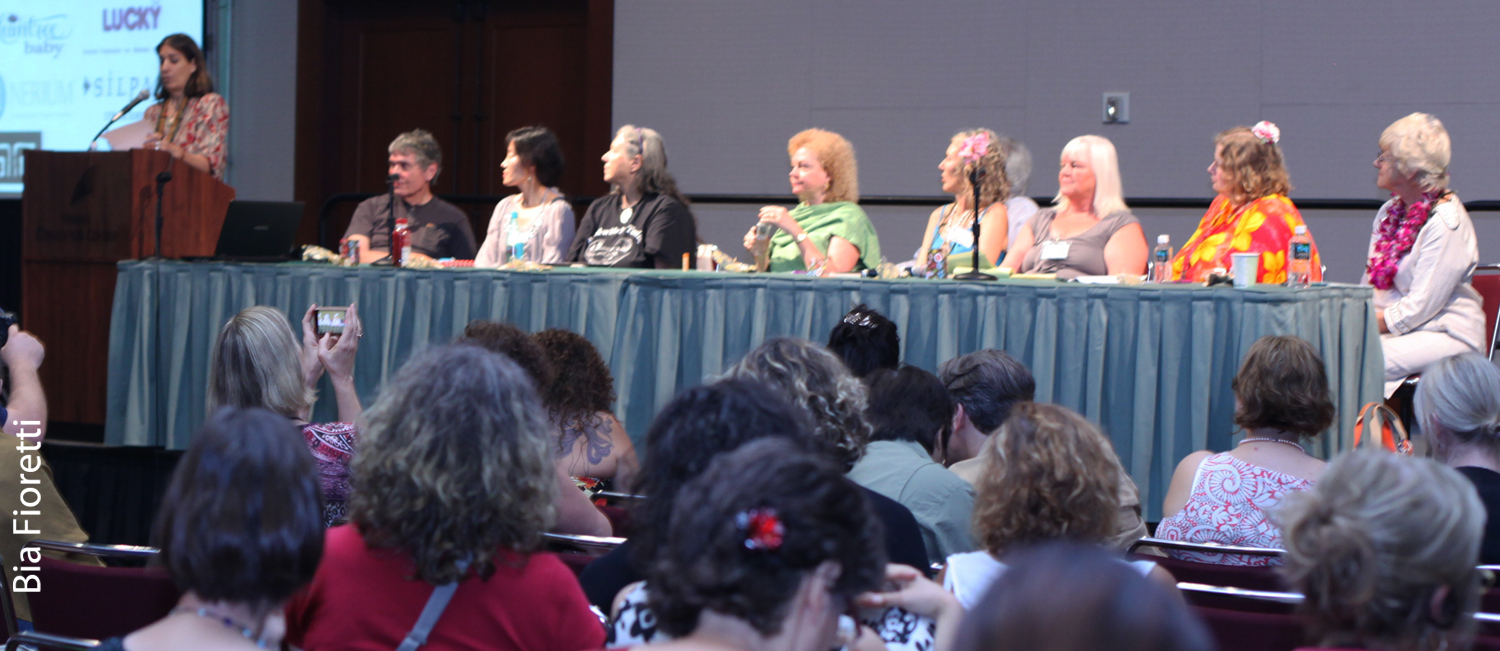Bidding my U.S. readers a Happy Thanksgiving! And to the rest of you, blessings on you just because! I’m taking off today to care for my home (such a nicer way to put it than “clean the house”) and begin kitchen prep. Then four days of cooking, eating and…being. A little slowing down and being with. Myself and others.

Anne will have a fuller plate this visit!
Last year was the first time in my life I spent Thanksgiving on my own. As somewhat sad as it was to anticipate that, once the day arrived, it was actually rather enchanting. I cooked myself a feast and spent time on the phone with several dear friends over the course of the day. That said, I’m happy to be spending Thanksgiving with a beloved friend this year — in fact, one of my (many) sisters.
Yes, friends, I grew up an only child, yet I have sisters and brothers of various kinds. How can that be? When you put together being adopted (by a woman who had a 12-year-old son), with divorce and re-marriage (thus, two step-sibs) and then adoption reunion with biological parents (who each had had other children), you get a veritable potpourri of family!
My biological father had left a marriage and a young son when he met my biological mother. I met that young son — my half-brother Mike — when we were in our 30s. I also met his wife Anne. We stayed in good touch over the years when I was raising children. Although Anne and Mike divorced a few years ago, I have remained very close with both of them…and it is Anne — technically my ex-sister-in-law?? — who is coming up to my mountain cottage tomorrow.

Just hangin’ with Anne Lamott!
I am wildly blessed with amazing family, and many fiercely loyal, dear friends…and for that I am so very thankful. I have also had the unique experience of navigating three years of living solitude, which has etched my blessings into bolder relief. I hope you’re with someone you love this holiday — even if that person is “just” yourself.
I’ll close by sharing a blessing our daughter Eve learned in kindergarten. It is perfectly suited to the function of a blessing as explained by Anne Lamott in her new book Help, Thanks, Wow: The Three Essential Prayers. As we say a blessing before we eat, Lamotte writes, “For a minute, our stations are tuned to a broader, richer radius. We’re acknowledging that this food didn’t just magically appear: Someone grew it, ground it, bought it, baked it; wow.”
Before the flour the mill,
before the mill the grain,
before the grain,
the sun, the earth, the rain:
the beauty of God’s will.

 A coach helps by seeing the desired result, knowing the steps for getting you there, and patiently reminding you of those steps. A coach helps as you take those steps, which may feel awkward or unnatural at first. A coach patiently encourages you along what can feel like an interminably long road, sometimes to what feels like an unreachable mountaintop, even when (especially when) you can’t see the destination.
A coach helps by seeing the desired result, knowing the steps for getting you there, and patiently reminding you of those steps. A coach helps as you take those steps, which may feel awkward or unnatural at first. A coach patiently encourages you along what can feel like an interminably long road, sometimes to what feels like an unreachable mountaintop, even when (especially when) you can’t see the destination.
 Gone are the days when we could consider pregnancy a 9-month “grace period” before the job of parenting begins. Mounting research tells us that lifelong wellbeing, including mental health, begins in the womb, and everything parents do – beginning even before conception — shapes their children in critical, life-altering ways.
Gone are the days when we could consider pregnancy a 9-month “grace period” before the job of parenting begins. Mounting research tells us that lifelong wellbeing, including mental health, begins in the womb, and everything parents do – beginning even before conception — shapes their children in critical, life-altering ways. As we all anguish over
As we all anguish over  So many questions in the wake of
So many questions in the wake of 





